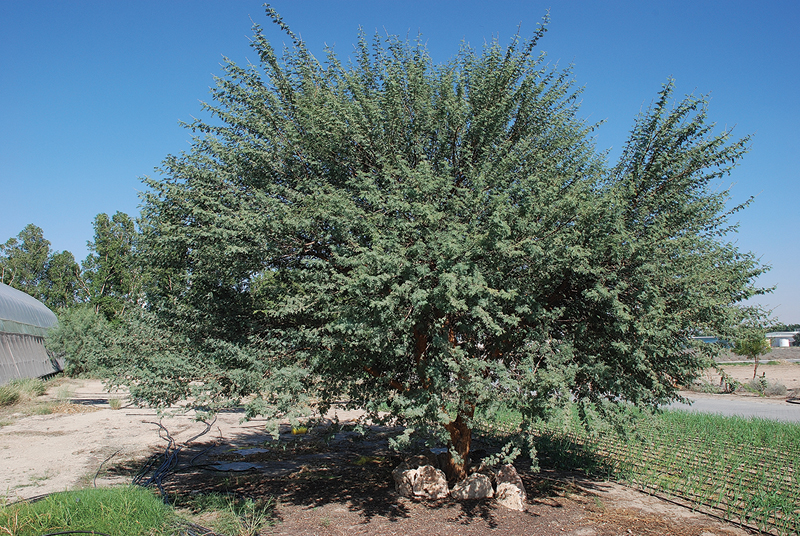
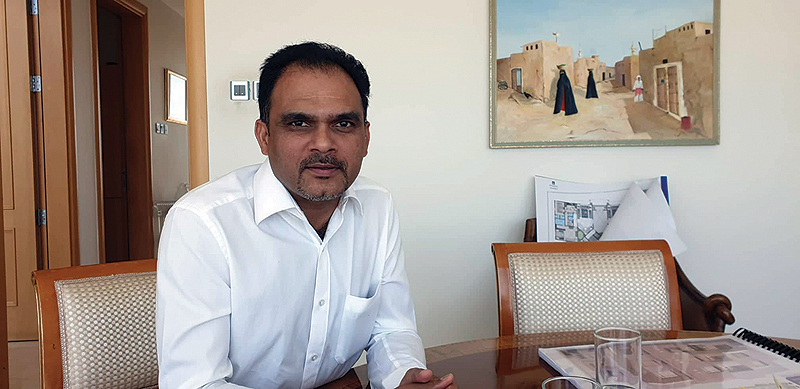
Out of 374 plant species native to Kuwait, only one can be considered a tree, and it can withstand the hottest summer heat in the country. The tree, known as 'Talha', can grow up to five meters tall and can live for 3-5 years or longer if it is cared for and not deliberately cut or killed. "If the Talha tree is not protected, it normally dies after 3 to 5 years. But it regrows depending on the climate," said Dr Jose Kaitharath, Technical Manager at Al-Faisaliya Farm.

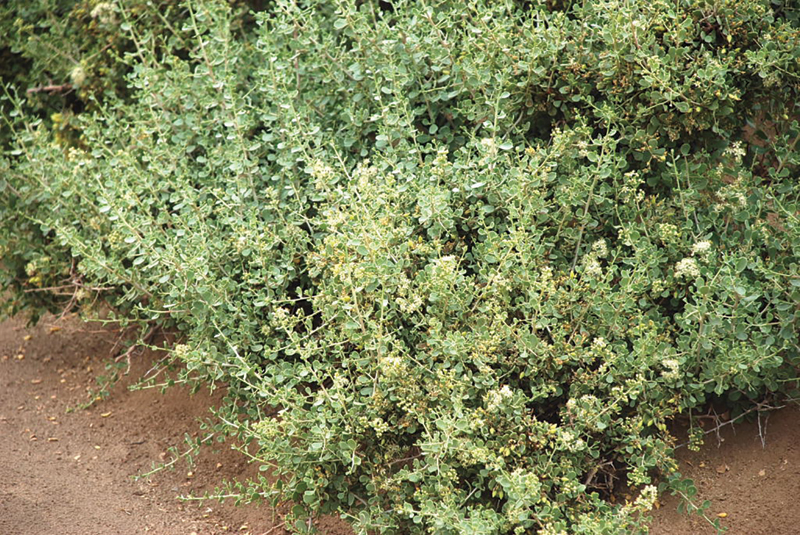
In 2006, Faisaliya Farm was chosen by the Public Authority for Agricultural Affairs and Fish Resources (PAAAFR) to conserve, protect and create a nursery for the distribution of native plants to cover at least 10 percent of Kuwait's landmass. But the proposal has stalled for more than a decade now. According to Kaitharath, Faisaliya Farm nevertheless started planting native trees and plants in its nursery, which it created even as the government dallied.

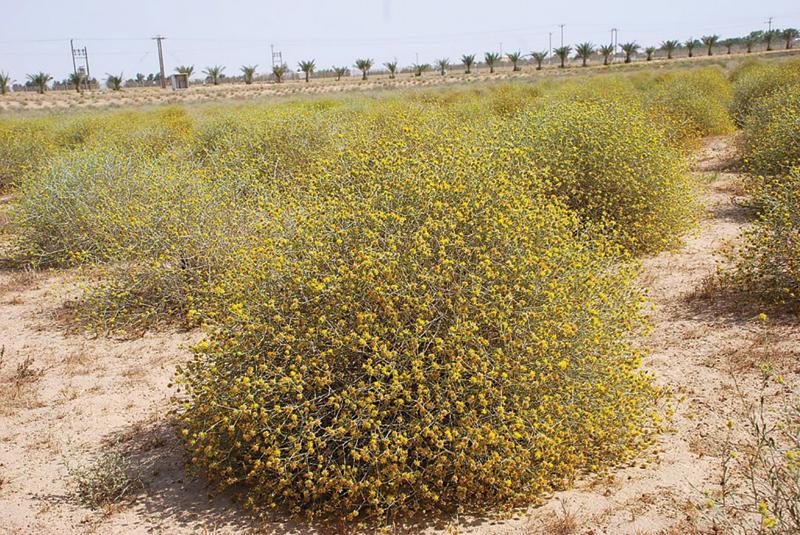
"Our founder Faisal Sultan Al-Essa created the nursery in 2006 aiming to produce seedlings and saplings that can be distributed and planted any time the government pursues the plan. Initially, they selected seven areas to plant these native plants, but due to bureaucracy, none have been operational," Kaitharath said.

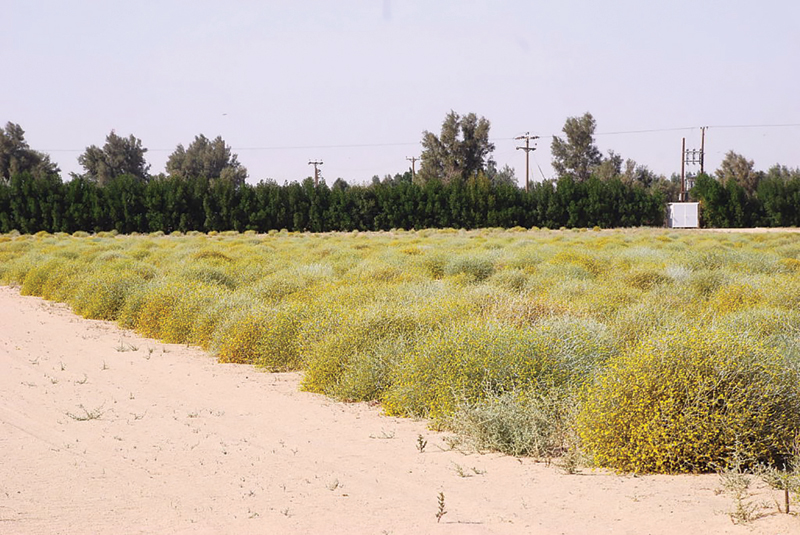
"I don't know what keeps them so slow to make this a reality - it's been 13 years now since we created the nursery of native plants of Kuwait. We have produced plants, the seedlings are ready and we are maintaining and growing it year after year in order to make the dream a reality and pursue the planting of native plants on 10 percent of Kuwait's land," he told Kuwait Times. He added some of the saplings they cultivate at Faisaliya Farm are sold to private companies.
Talha is one of the species being cared for at the nursery. "Talha is the best plant we should be seeing here in Kuwait instead of the many Conocarpus trees imported from Africa (they are native to Ethiopia)," Kaitharath said. These trees started to thrive after the 1991 Gulf War and dominate the streets of Kuwait.
But according to Kaitharath, they kill the natural ecosystem. "These trees suck up all the minerals and water where they are planted, leaving our soil vulnerable and unproductive. If we keep them in Kuwait for long, they will make this country more arid and unhealthy. It also kills small plants that grow under it. We need to slowly remove these trees in Kuwait, just like they did in Dubai. They had them before, but now they have eliminated them for good," he said.
"I think the government is doing all it can to get rid of the Conocarpus. They are not native to Kuwait, but the irony is that we keep growing them here because they grow quickly and create greenery on the streets. But we are not aware that it destroys our natural environment. We recommended the government to get rid of these trees because they are harmful in the long term and will destroy the natural environment of Kuwait," Kaitharath said. He also mentioned related health issues like allergies suffered by people because of its flowers.
Kaitharath recommends slowly replacing this plant to restore the natural ecosystem. "Talha needs less maintenance compared to Conocarpus plants that need a huge amount of water. The Conocarpus needs one liter of water per leaf - it's too much! Imagine how much water you need caring for that tree. Conocarpus leaves also cannot be composted for fertilizer as they are dry and take years to disintegrate. They are not eaten by microbes, not eaten by soil minerals and even earthworms," he said.
According to Kaitharath, the government is now looking at Conocarpus plants objectively and is keen on replacing most imported plants and trees in favor of plants native to Kuwait. "This is the reason why we exist - we want to help the government by delivering the best native plants we have in Kuwait. In some places, they are now planting native shrubs and I hope they will come to a complete realization that these kinds of plants have no place in Kuwait," he said.
To preserve the natural environment, Kaitharath advises the government to sponsor planting plants native to Kuwait, completely eliminate Conocarpus trees, balance the grazing of animals in the desert and limit oil exploration and extraction (but we cannot dictate the government on this since the main source of revenue is through oil). Dumping of waste products and the annual camping season are the main factors why Kuwait's ecosystem is being destroyed. "Kuwait's ecosystem is very unique - there are plants that grow only in Kuwait that you cannot even find in Saudi Arabia because of environmental conditions. The soil here is very saline, and it is too hot, dry and sometimes very cold too. Common plants such as date trees and cactus in the desert are not actually native to Kuwait," he concluded.
By Ben Garcia


